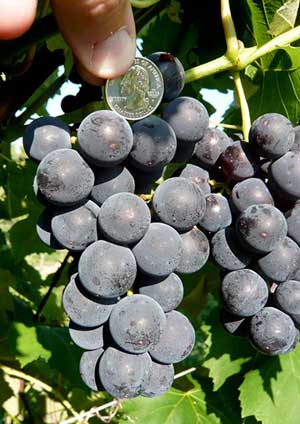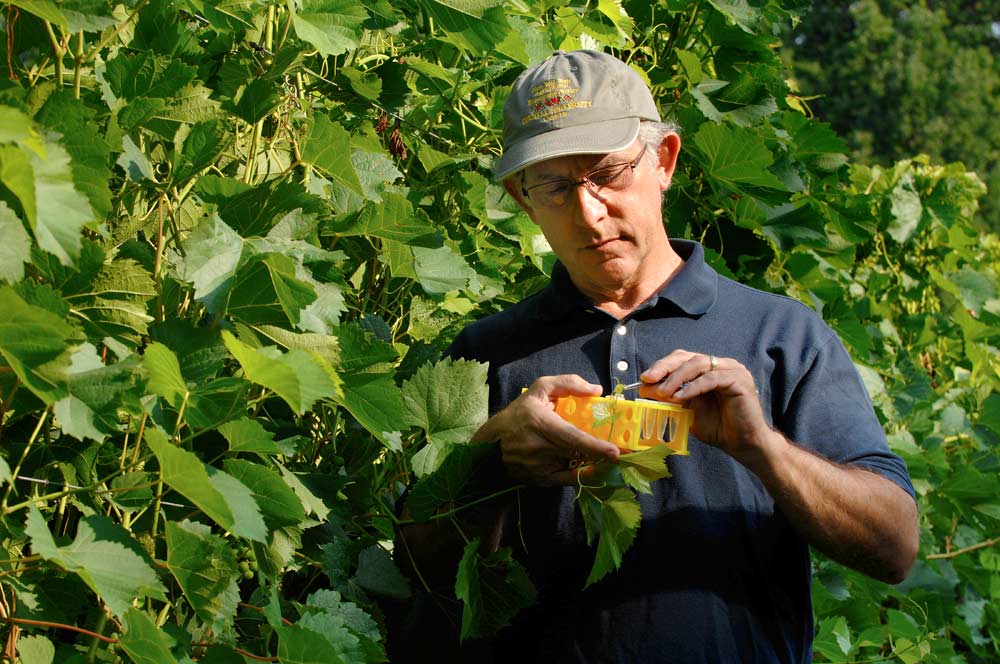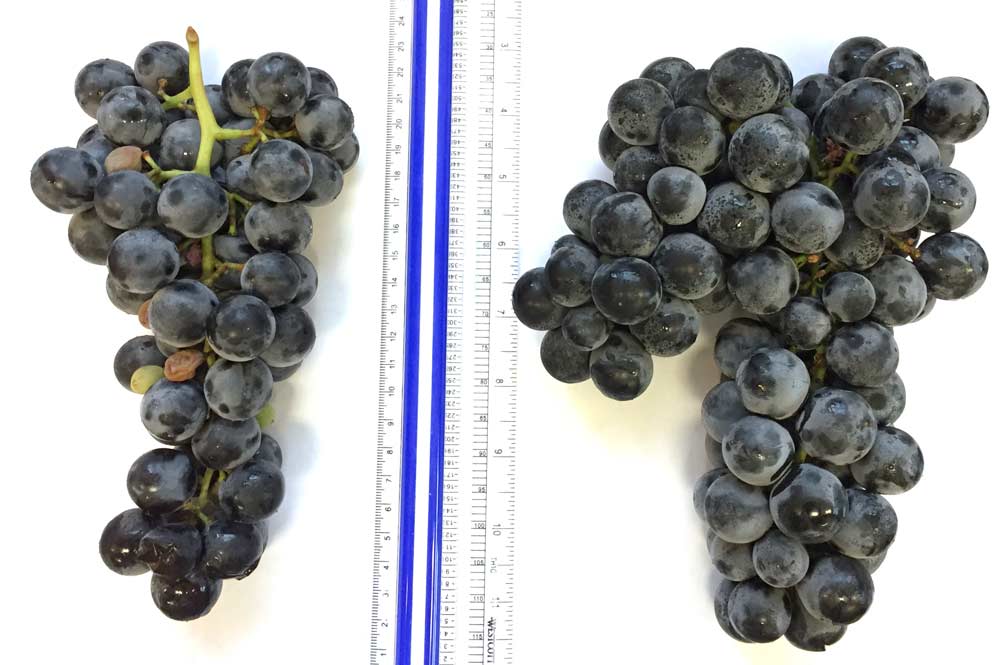
Everest Seedless table grapes, developed by Cornell University’s grape breeding program, are about twice the size of a traditional Concord grape. Seen here, Everest’s size compared to a quarter. (Courtesy CALS Communications)
Cornell University grape breeders have introduced a new table grape variety: the Everest Seedless. Like its namesake, the new grape is big and bold.
“Everest is one of the largest mountains in the world, and this is one very large grape,” said Bruce Reisch, grape breeder with Cornell AgriTech in Geneva, New York, and professor of horticulture in Cornell’s College of Agriculture and Life Sciences.
Featuring juicy blue berries that weigh up to 7 grams, the Everest Seedless is about twice the size of a classic Concord. The new variety marks the first seedless Concord-type grape available and was primarily developed for eating fresh rather than for processing into jam, juice or wine.
Along with its impressive size, the Everest Seedless is cold tolerant to temperatures as low as 15 degrees below zero Fahrenheit, shows moderate resistance to downy mildew and powdery mildew, and was not bothered by insects in Cornell’s research vineyards, where insecticides are not applied. The vines are described as vigorous, are rated for USDA Hardiness Zone 5, and are harvested midseason.
With such high marks, Reisch expects the Everest Seedless will be popular with commercial grape growers as well as home gardeners. The new variety is exclusively licensed in the U.S. to Double A Vineyards of Fredonia, New York. Royalties from sales of the Everest Seedless will go back to Cornell University and to the grape breeding program to fund further research and development.
Grape breeders in the Cornell-Geneva Grapevine Breeding and Genetics Program have been actively introducing new grape varieties since 1906. According to a list on Cornell’s website, the Everest Seedless is the 59th grape released from the program.

Bruce Reisch at the Cornell University Agricultural Experiment Station vineyard, Geneva, New York. (Courtesy CALS Communications)
Grape breeding starts with a concept, Reisch said. “We were looking to develop very flavorful grapes with large berries and large clusters, and we’ve achieved that with Everest Seedless,” he said.
Cornell’s grape breeding program primarily focuses on developing new wine grape varieties that have positive characteristics for winemaking combined with disease resistance and cold tolerance. The program breeders also seek to develop flavorful, attractive table grapes with cold hardiness and storage potential. In addition to using traditional interspecific hybridization to select grapes that display the desired traits, the program’s grape breeders use novel techniques such as gene mapping.

A cluster of the new Everest Seedless table grape, introduced by grape breeders at Cornell University, compared to the classic Concord grape. (Courtesy CALS Communications)
According to a Cornell news release, the process for developing the Everest Seedless included a unique genetic approach. Most cultivated grape varieties have 38 chromosomes, but some, known as tetraploid grapes, have 76 chromosomes. The higher chromosome count results in a naturally larger berry.
The Everest Seedless includes genes from two Japanese tetraploid varieties, Kyoho and Pione, the American cultivars Concord and Niagara, and several other grape varieties developed at Cornell, including Himrod and Ontario.
“With its formidable ancestry and big flavor, we feel this variety can live up to its name,” Reisch said. •
-by Jonelle Mejica






Leave A Comment